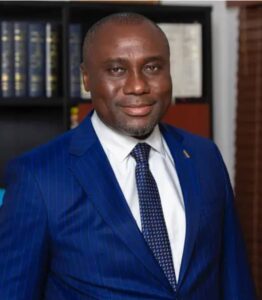
Officials of the Education Ministry with some NST pupils
A total of 1,542,000 pupils from private and public schools in the country have successfully written this year’s edition of the National Standardized Test.
Of the number, 792,000 were primary four pupils while the remaining 750,000 were primary two pupils.
The essence of the test is to ascertain the strength and weaknesses of the pupils in literacy and numeracy which are the foundational skills required for effective teaching and learning.
Addressing the media, after monitoring the NST in some selected schools in Accra, the Minister of Education, Dr. Yaw Osei Adutwum, commended all stakeholders who contributed in diverse ways towards the execution of the test.
Some of the schools visited were the Adabraka Cluster of Schools, which includes the Nii Amugi Basic, All Saints Anglican, Calvary Methodist One and Two, and Grey Memorial Junior High One Basic School.
Dr. Adutwum said the government is committed to ensuring that the right interventions are put in place as a means of helping pupils with peculiar challenges identified after the test.
He indicated that the data acquired from the test would also go a long way to enhance planning for the right resources to be sought towards supporting any intervention measures for the pupils.
Commendation
He praised the National Council for Curriculum and Assessment (NaCCA), Ghana Education Service (GES) and other stakeholders for their roles played towards the successful conduct of the test across the country.
He disclosed that after the results are released, a team would be put in place to come out with intervention packages for each child in their schools to take care of the challenges identified during the test.
The Director General of GES, Dr Eric Nkansah, who accompanied the Education Minister, eulogized the teachers and other staff who contributed in diverse ways to ensure that the exercise was successful.
E-testing
The Primary two NST saw pupils from 18,000 schools writing the test with 9000 administrators assisting in its execution. The test was conducted on electronic tablets provided by NaCCA.
The primary four tests were, however, written on paper by the pupils.
The Education Ministry in its bid to help find solutions to challenges confronting the education sector piloted the National Standardized Test in the country last year.
Last year’s edition saw pupils from all first four primary classes drawn from public schools across the country taking part in the test.









Your point of view caught my eye and was very interesting. Thanks. I have a question for you.